Jayne McCormack
BBC News NI political correspondent

 BBC
BBC
Stormont has been back up and running for a year but is the public feeling the benefits?
What's changed since Stormont returned 12 months ago?
Ask most politicians and they'll say, plenty: a Westminster election, three changes of party leaders and, in between all of that, rows over public finances and policy.
But ask someone who isn't a politician and the answer, in many cases, is very little feels different.
Remember the promise from the Stormont Executive to prioritise making childcare more affordable?
Mum-of-one Jessica Brown does.
She runs Toddler Sense North East, and feels many working families haven't benefitted at all from Stormont's return.
She said she left full-time work when she had her son because it would have cost more than her mortgage to put him into childcare and remain in her job.
"This gives me more flexibility for my little boy - I have lots of mums who come here working part-time because they can't even get their child into full care facilities and when they do they're paying £400 to £600 a month for one child," she said.
"I don't feel the politicians have made a difference for my family or the mums who come here."

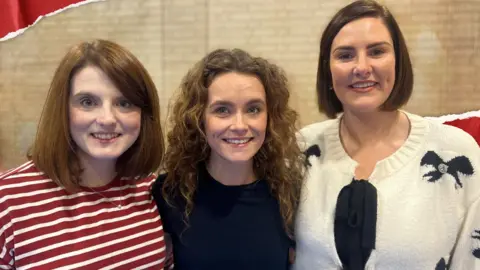
Toddler Sense North East's Jessica Brown (centre), pictured alongside Alex McNeill (left) and Fiona O'Connor (right)
Education Minister Paul Givan has taken steps to improve access to childcare, with a subsidy scheme of £25m being set up last year allowing some families to make savings, which is set to be extended into the new financial year.
He also warned, just weeks into his job, that it would cost £400m to overhaul the childcare system properly in Northern Ireland.
Childcare groups are also still pressing the executive to deliver a full strategy for early learning and childcare.
Pauline Walmsley, chief executive of the Early Years Organisation, welcomed the commitment to build on the childcare subsidy scheme, but added: "We all recognise, however, that this is only the start and that we need the minister's request for a £450m multi-annual budget to be agreed."
But childcare is far from the only issue requiring extra financial firepower.
Just a glance at departmental in-trays shows the backlog of problems our politicians faced when they went back to work 12 months ago.
On health, waiting lists continue to grow longer with the latest figures showing more than half a million people in Northern Ireland now on lists for a first consultation with a hospital consultant.
The tug-of-war between the health minister and the rest of the executive over money will continue in 2025, as ministers from other parties argue that every department needs a fair share of finite funding.
It's not just more money that Stormont needs, but new laws too.
Sign language law 'will improve struggles'

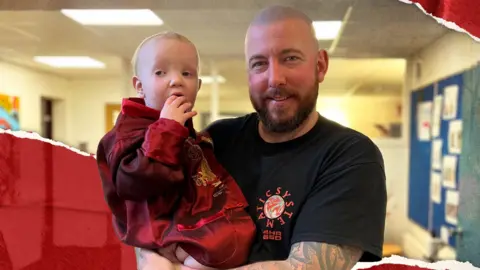
Andy Reay says he worries about his son Jude's future
Despite promising to bring some 19 bills to the assembly in its first year so far the executive has managed to introduce fewer than half of that - a figure heavily criticised by the Social Democratic and Labour Party (SDLP), Stormont's official opposition.
But there is set to be movement on a major piece of legislation within weeks.
After a decade of delay, a bill officially recognising sign language in Northern Ireland is coming to the assembly this month.
For those in the deaf community, like Andy Reay who also has a deaf son, it's a crucial step forward.
He moved to Northern Ireland from England 10 years ago and feels that Northern Ireland lags behind other parts of the UK when it comes to support.
"I do worry about the future of my son, I want him to be able to go through life at ease and not to face the same struggles I did," he added.

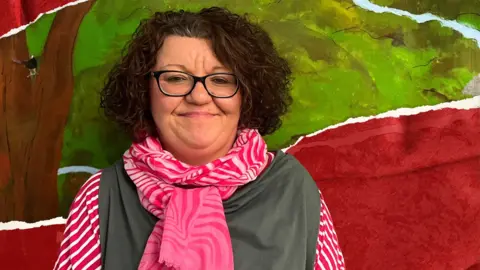
Julie Graham said the bill is a move in the "right direction"
Julie Graham of Action Deaf Youth, which works with young deaf people and runs sign language classes, said she was "very excited" for the new law.
"This was first announced in 2015... then the assembly fell in 2016, then we had Covid, then another collapse, finally now in 2025 it is the time," she added.
"It is not going to be a magic cure but it is definitely going in the right direction, it's about raising more awareness too so that young deaf people can feel proud of their culture and language."
No language commissioners
As for other language-related issues at Stormont, progress seems non-existent.
Irish and Ulster-British commissioners, promised as far back as 2021, have yet to be appointed by the first and deputy first ministers.
We're also still waiting on a new victims commissioner and a climate change commissioner.
The fact none of them are in place a year on is a reminder of how slow the Stormont system can be.

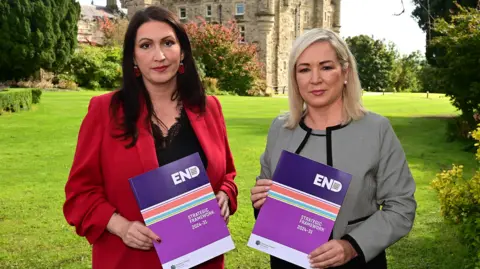 Pacemaker
Pacemaker
Deputy First Minister Emma Little-Pengelly and First Minister Michelle O'Neill launched the Ending Violence against Women and Girls strategic framework last year
One area that has seen cross-party agreement is tackling violence against women and girls - a campaign that the first and deputy first ministers have been keen to front.
Some £3m worth of investment aimed at grassroots organisations and campaign groups was announced last year, alongside a dedicated strategic framework - in other words laying out an action plan with the PSNI, Department of Justice and other groups to try to promote awareness and education.
But there's an acknowledgement from ministers that the money is merely a drop in the ocean when it comes to confronting what is also a societal issue.
The executive also has commitments to survivors of historical institutional abuse and mother and baby homes in Northern Ireland.
On the latter, a new bill that would legislate for compensation has yet to be published.
And some victims and survivors of HIA, who have had a redress scheme in place since 2020, are sceptical about Stormont's track record.

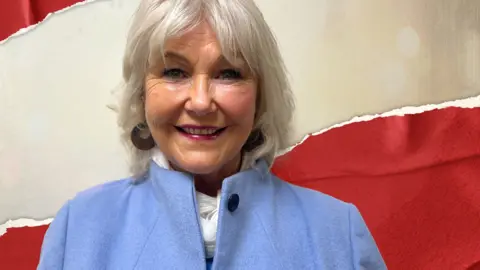
Victims' campaigner Margaret McGuckin said "we are still having to lobby" political leaders
Margaret McGuckin, from Survivors and Victims of Institutional Abuse (SAVIA), said "nothing has changed" since power sharing returned.
"We are still having to do the running, we are still having to lobby them. It's as if nobody is there, they're invisible and then when you do request to meet them they come out of the woodwork.
"The community out there need people to lead them."
This new Sinn Féin-DUP partnership has reached its first birthday with not even a crisis moment: when most anniversaries related to Stormont are negative that alone is worth marking.
But will it have managed any real delivery in another 12 months, and more importantly, will people feel the benefits?

 3 hours ago
1
3 hours ago
1












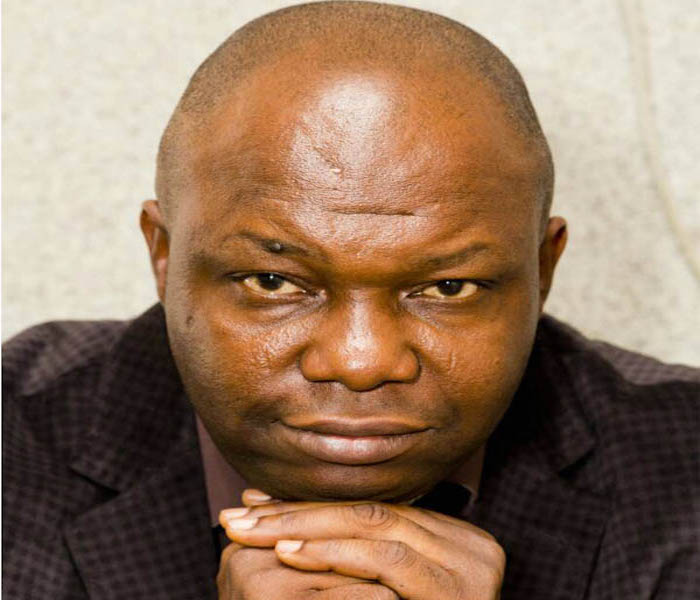


 English (US) ·
English (US) ·